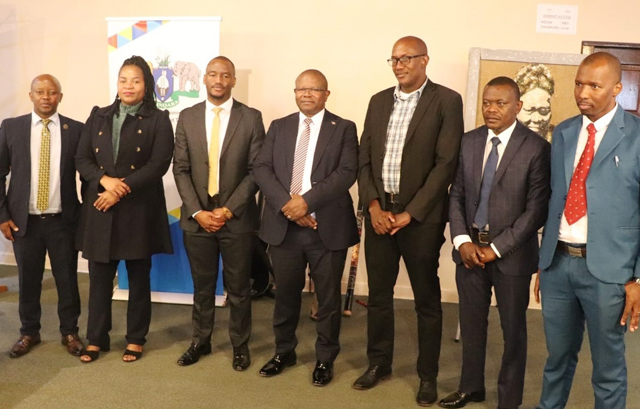By Bodwa Mbingo | 2020-05-16
With government mulling the reopening of schools amid the partial lockdown, pupils in various schools might be called upon to get their lessons in shifts in their schools around the country.
That is if a proposed schools reopening framework by the ministry of education and training is anything to go by. The draft proposal concedes that the schools closure due to the COVID-19 pandemic presents an unprecedented risk to children’s education and wellbeing. It states that the ministry of education is conscious of the long-term consequences of the COVID-19 situation on the economy and society, hence the continued efforts to explore interventions to mitigate the impact of the pandemic on education, through consultations and support from stakeholders.
The draft framework proposes a phased approach to the schools reopening where, for example, it could be initially limited to a few days of the week, or only apply to certain grades or levels.
Also proposed are;
In a nutshell, framework suggests strategies that the ministry will implement during the reopening of schools. The framework also guides decision-making processes to reopen schools, support national preparations and guide the implementation process.
Services
“Disruptions to instructional time in the classroom can have a severe impact on a child’s ability to learn. The longer vulnerable children are out of school, the less likely they are to return. Being out of school also increases the risk of teenage pregnancy, sexual exploitation and other forms of child violations.
“Further, prolonged closures disrupt essential school-based services such as school feeding, mental health, psychosocial support. The situation can also cause stress and anxiety due to the loss of peer interaction and support and disrupted routines. These negative impacts will be significantly higher for vulnerable children, such as children living with disabilities,” further suggests the draft proposal.
The ministry, according to the draft, will be guided by reviewed policies to ensure alignment to the COVID-19 situation; clear policies to guide opening of schools, in view of the COVID-19 situation. It also provides that the ministry will be guided by admissions policies and reopening requirements aligned with the goals of universal education by eliminating barriers to entry for marginalised populations, such as girls who may be pregnant. “It will also be guided by policies that protect staff, teachers and students who are at high risk due to age or underlying medical conditions, with plans to cover absent teachers and remote education to support students unable to attend school.
Draft
“Assessments policies for the current academic year reviewed to guide learner progression to the next grade will also be considered as well as remedial teaching informed by impact assessment of the COVID-19 situation on learners’ levels of learning, following school closures and clear plans on re-adjustment of the school calendar,” further suggests the draft.
Further, the ministry will ensure that the capacity of schools will maintain safe school operations to mitigate risks, such as social distancing, availability of water, sanitation and hygiene facilities. It will also ensure availability of emergency protocol - to respond if students or staff members become unwell. It will also ensure the availability of safe travel plans for the learners and teachers, to and from school as well as the safety of teachers, learners and support staff through development and implementation of safety. Protocol and mobilising screening services for school populations through the ministry of health (schools health) will also be a priority. “The ministry will sustain and increase investment in remote and distance learning, to build resilience teaching or learning systems for future similar emergences. The ministry will adopt practices that compensate for lost instructional time, strengthen pedagogy and build on hybrid learning models. “It is important to ensure all children are coming back to school and that parents, children and communities feel safe to send the children back to school. Therefore, a communication campaign is important to ensure compliance of all.
“The ministry will further assess the cost of school re-opening and ensure funds are available for safe and better school reopening; evaluate any cost associated to the change in policies; and increase investment in remote and distance learning to prepare in case of future emergency,” concludes the draft.
share story
Post Your Comments Below

BUSINESS Eswatini (BE) President Mvuselelo Fakudze and Chief Executive Officer (CEO) E. Nathi Dla...

YESTERDAY, exciting developments unfolded for local artists as the Eswatini Copyright and Neighbo...

SOMHLOLO National Stadium is set to shine even brighter on Sunday as South African football legen...

Eswatini Revenue Service (ERS) has recorded revenue collection of E14.6 billion for the 2024/25 f...
All material © Swazi Observer. Material may not be published or reproduced in any form without prior written permission.
Design by Real Image Internet